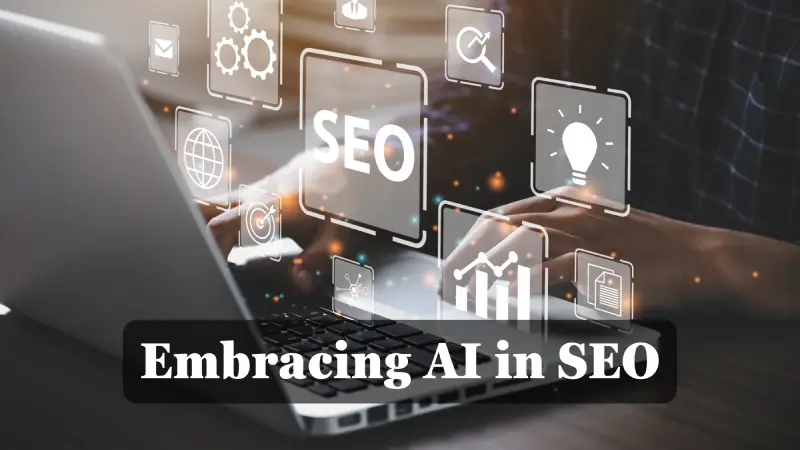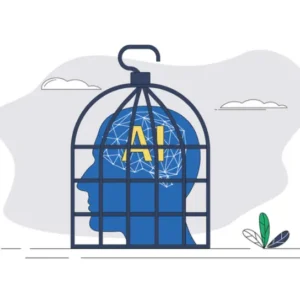The fusion of Artificial Intelligence (AI) with the realm of Search Engine Optimization (SEO) has revolutionized the digital landscape, reshaping the way websites rank and users discover content. As the capabilities of AI continue to expand, it becomes increasingly crucial for SEO professionals to understand the profound impact of this technological integration on their roles and the industry as a whole.
In this blog post, we will delve into the dynamic relationship between AI and SEO, exploring the opportunities it presents, the challenges it poses, and the critical role of SEO professionals in navigating this transformative journey. From automating mundane tasks to unleashing new possibilities in content optimization and user experience, AI’s influence on SEO has the potential to shape the future of digital marketing.
Join us as we unravel the implications of AI in SEO, discovering how this symbiotic partnership can unlock unprecedented growth and propel SEO professionals towards greater success in an ever-evolving digital landscape. Let’s embark on this enlightening journey to uncover the profound impact of AI on the future of SEO and how SEO professionals can embrace this new era to thrive in a world driven by data, technology, and innovation.

Positive Impact of AI on SEO: Embracing AI’s potential & automation to boost SEO Performance
AI is expected to have a significant impact on SEO jobs across the world. While AI can automate certain tasks and streamline processes, it also opens up new opportunities and challenges for SEO professionals. Here are some ways AI may affect SEO jobs:
Automation of Repetitive Tasks
AI-powered tools can automate repetitive SEO tasks such as keyword research, content optimization, and data analysis. This can free up SEO professionals’ time to focus on more strategic and creative aspects of their work.
Advanced Analytics and Insights
AI can process vast amounts of data and provide in-depth insights and predictions. SEO professionals can leverage AI-driven analytics to make data-driven decisions, understand user behavior better, and optimize SEO strategies accordingly.
Personalization and User Experience
AI can help SEO professionals deliver personalized user experiences by analyzing user behavior, preferences, and search patterns. Understanding user intent through AI can lead to more relevant content and better customer engagement.
Voice Search Optimization
With the rise of voice-activated devices and assistants, AI will influence SEO professionals to optimize websites for voice search queries. Voice search SEO strategies will be essential to capture voice-based search traffic.

AI-Driven Content Generation
AI-powered natural language generation tools can create content at scale. SEO professionals may use these tools to generate content for specific keywords or topics, but they will need to ensure the quality and relevance of AI-generated content.
Algorithm Changes and Adaptation
As search engines use AI algorithms to improve search results, SEO professionals will need to stay updated on algorithm changes and adapt their strategies accordingly to maintain or improve rankings.
Demand for AI Skills
As AI becomes more prevalent in the SEO industry, there will be an increased demand for professionals with AI and machine learning skills. SEO experts will need to upskill and embrace AI technologies to stay competitive in the job market.
New Job Roles and Specializations
AI will create new job roles and specializations within the SEO field, such as AI SEO strategists, AI content analysts, and AI data scientists, focusing on leveraging AI technologies for SEO success.
Ethical Considerations
As AI influences SEO practices, professionals will need to consider ethical implications, especially concerning user privacy, data protection, and the responsible use of AI-generated content.
Negative Impact of AI on SEO: Navigating AI’s Impact on SEO & Addressing challenges for SEO professionals
While AI and automation can bring numerous benefits to the field of SEO, they may also have some negative impacts on SEO jobs. Here are some potential negative effects:
Job Displacement
As AI automates repetitive SEO tasks, some entry-level or lower-skilled SEO roles may be at risk of being replaced by AI-powered tools. This could lead to job displacement for certain SEO professionals.
Skill Shift
The introduction of AI may require SEO professionals to acquire new skills and adapt to changes in the industry. Those who fail to upskill and embrace AI technologies might find it challenging to remain relevant in the job market.
Reduced Demand for Manual Tasks
AI can handle various SEO tasks more efficiently than humans, leading to decreased demand for manual tasks such as keyword research, content generation, and basic analytics.
Dependence on AI Tools
Over-reliance on AI tools without human oversight could lead to errors or biased outcomes. SEO professionals need to ensure that AI-driven decisions align with their overall SEO strategy and objectives.
Increased Competition
As AI makes certain SEO processes more accessible, it could lead to increased competition in the industry. SEO professionals may face tougher competition for clients or job opportunities.
Ethical Challenges
The use of AI in SEO raises ethical considerations, especially regarding data privacy, content originality, and the responsible use of AI-generated content. SEO professionals must navigate these ethical challenges carefully.
Limited Creativity
While AI can optimize content and keywords based on data, it may lack the creativity and human touch required for innovative content strategies and brand storytelling.

Algorithm Uncertainty
SEO professionals may find it challenging to keep up with ever-changing AI algorithms and their impact on search rankings. Understanding AI-driven algorithms can be complex and require continuous learning.
In conclusion, the integration of AI into the field of SEO presents a dual landscape for SEO professionals. On one hand, AI is set to automate repetitive tasks, opening doors to new efficiencies and opportunities. By leveraging AI-driven tools and strategies, SEO professionals can optimize content, improve targeting, and enhance user experiences, leading to better results for clients and organizations.
However, the rise of AI in SEO also brings some challenges. Certain entry-level SEO roles may face job displacement, and SEO professionals will need to acquire new skills and adapt to the changing landscape to remain competitive in the industry. Ethical considerations surrounding AI usage, such as data privacy and content originality, must also be carefully navigated.
In the face of these challenges, SEO professionals must embrace AI technologies and stay updated on industry trends to maximize its potential benefits. By understanding AI algorithms, leveraging advanced analytics, and maintaining a human touch in creative content planning, SEO professionals can position themselves to thrive in the evolving SEO landscape.
Ultimately, success lies in striking a balance between AI-driven automation and the value of human expertise. By embracing AI while preserving human ingenuity, SEO professionals can harness the full potential of AI to achieve remarkable results in the ever-evolving SEO industry.
Ready to experience the transformative power of SEO? Contact AJTechDigital today to unlock the full potential of your business. Our SEO consulting services are tailored to set you on the path to digital success.
